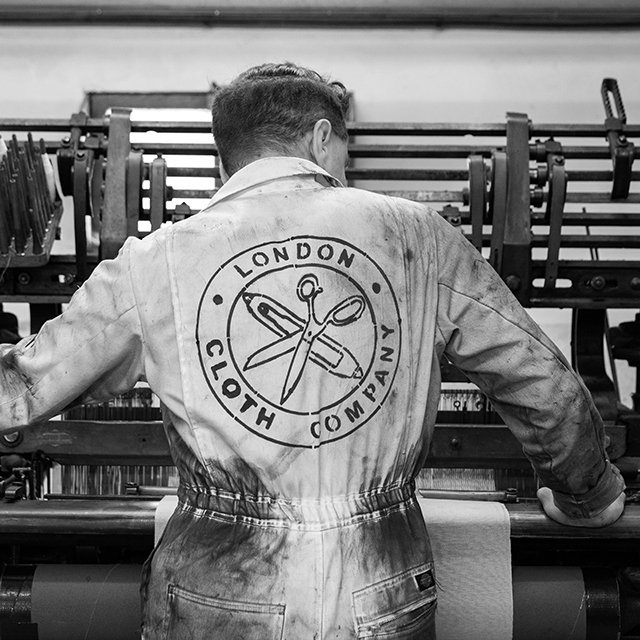Daniel Harris - UK
“A natural machinist from his sewing days (though armed with zero weaving experience), Daniel quickly became a self-taught loom whisperer. Fast forward to 2023, and he's now the genius behind Elvet Woollen Mill, which he is lovingly restoring and simultaneously producing cloth for some serious names in fashion and film.
Situated in wild West Wales, the London Cloth Company has a new home in one of the last fully operational woolen mills. The steady clacking of looms echoes through the stone walls, narrating a tale of unwavering commitment and precise craftsmanship.
Visitors to Elvet Woollen Mill step back into the industrial age. Some of the looms have been working since 1904. You'll find Daniel in his boilersuit knotting, fixing, welding, shipping cloth off to Japan and weaving Welsh blankets, in Wales, the traditional way.”
“The London Cloth Company's journey to West Wales is where most of the machinery Daniel Harris has collected now lives. Their weaving repertoire extends beyond woollens, to include rope-dyed indigo cotton, making them one of the only mills in the UK weaving true rope-dyed indigo fabrics (a real pain in the arse to weave).
Our commitment to quality woven cloth, particularly woollens, is woven on carefully restored shuttle looms dating back to the 1870s. Although our physical location has shifted, the traditional practices remain. The rhythmic dance of threads is a constant in our ever-expanding family of looms. We specialise in weaving fabrics to order, with an online shop featuring varied meterage from our stock.”
“What sets The London Cloth Company apart is Daniel Harris' commitment to genuinely sustainable practices and locally sourced materials. The mill collaborates with nearby sheep farmers to procure premium-quality Welsh wool, ensuring a seamless connection between the landscape, flock, and the final woven masterpiece. This dedication to traceability not only contributes to the quality of their products but also reflects a deep respect for the environment and the agricultural communities.”
-Taken verbatim from London Cloth Company

